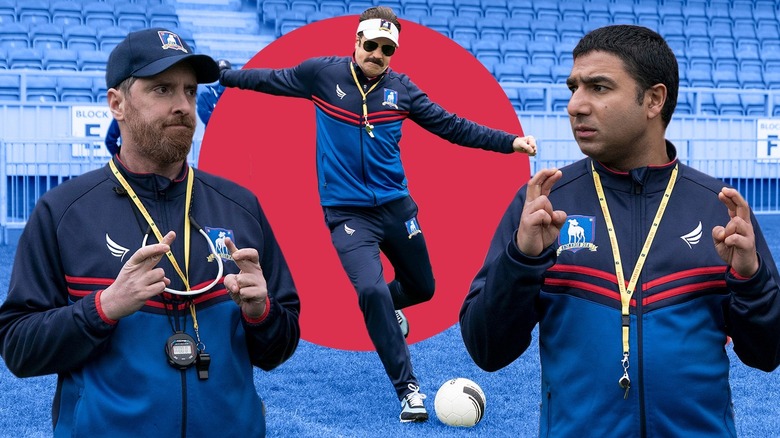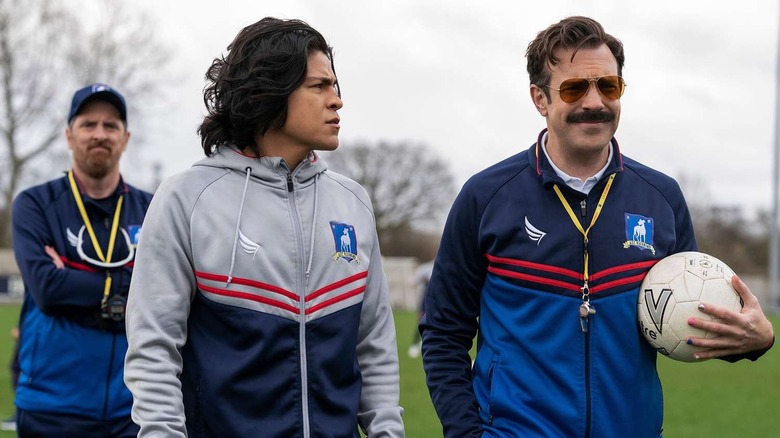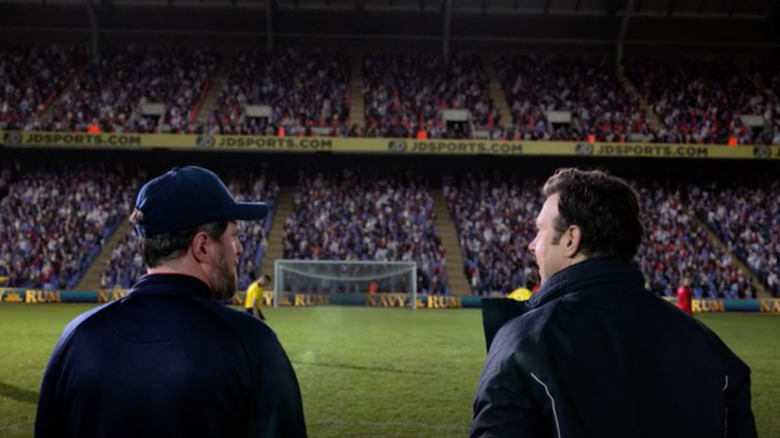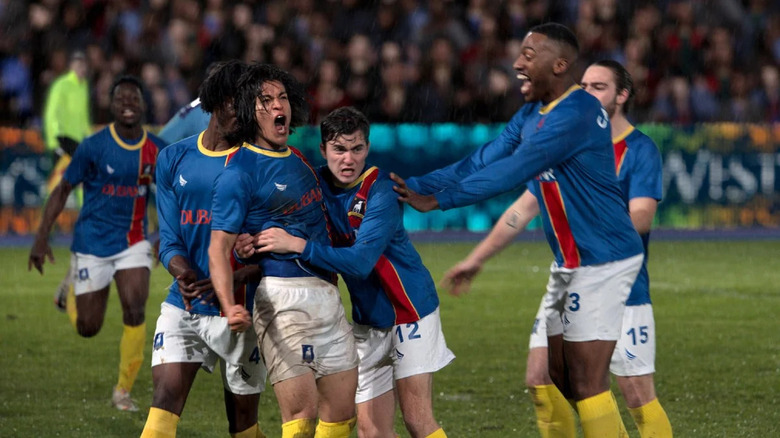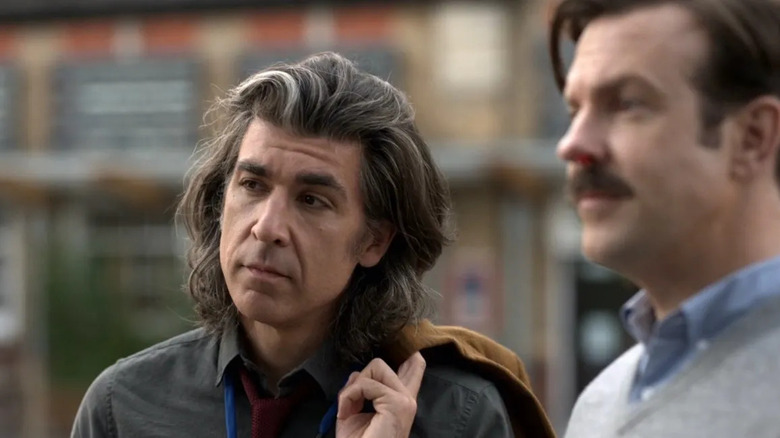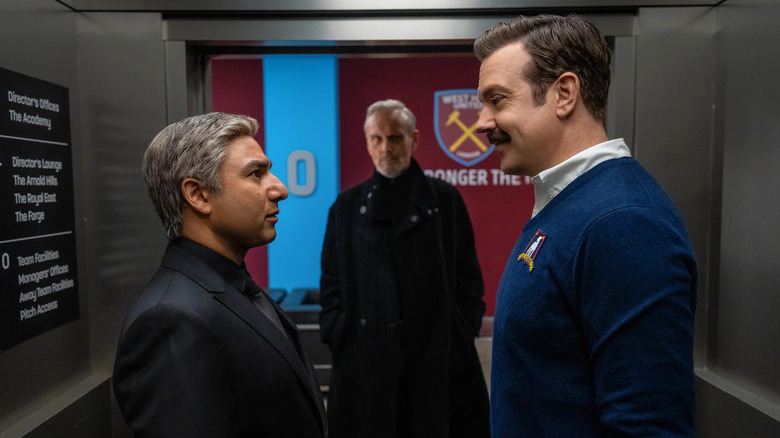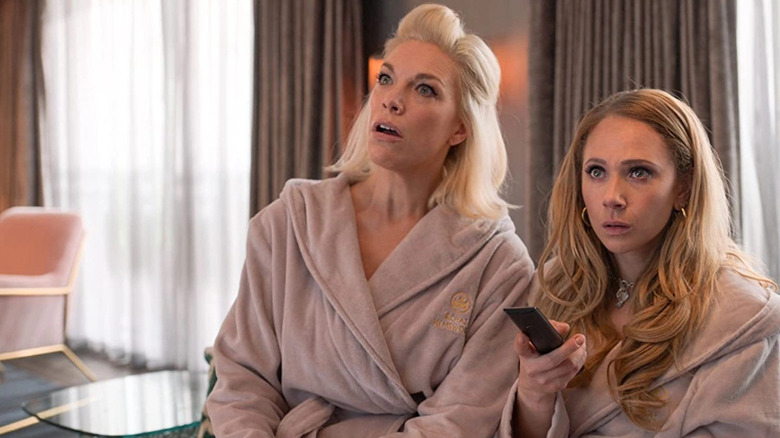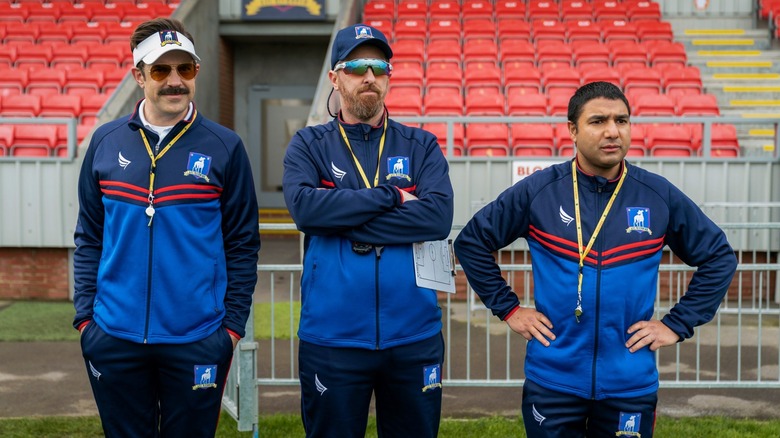What Ted Lasso Gets Right (And Wrong) About Soccer, Er, Football
We English are extremely passionate and territorial about our national sport. Even as an Englishman who started following my home club, Ipswich Town, over 30 years ago, it still surprises me how much football permeates our culture whenever I take a trip back to the UK. Almost any social interaction, whether it is small talk with the owner of a corner shop or the preamble to a business meeting, usually involves a little footy banter.
Football, aka soccer, took its modern form when the Football Association laid down the rules in 1863. The first English Football League season followed in 1888, a 12-team competition that saw Preston North End crowned champions. The English take a nostalgic pride in giving football to the world, although our national team has long been eclipsed by other nations who have refined and perfected the game. Even so, we still like to think that our long history of mediocrity on the international stage is merely a blip; you'll still hear certain sections of the crowd singing "Two World Wars and One World Cup" whenever England plays Germany, willfully ignoring the fact that the Germans have racked up three trophies since our lone triumph in 1966.
This arrogance sometimes leads to misconceptions about other nations too, not least the United States. Many English supporters still hold the conviction that Americans will never understand our beautiful game the way we do, and their insistence on calling the sport "soccer" instead of football is always guaranteed to get a hardcore English fan spluttering into their pint.
This brings me to "Ted Lasso," the Emmy Award-winning comedy-drama from Apple TV+ about an optimistic but clueless American Football coach (Jason Sudeikis) drafted in to manage lowly AFC Richmond, a fictional English Premier League club. What does this American take on the English national sport get right, or wrong?
The premise of Ted Lasso
"Ted Lasso" is a feel-good sports sitcom spun out from an NBC Sports commercial in 2013 that was created to plug their coverage of the English Premier League. The promo introduced Lasso, the newly appointed head coach of the "Tottenham Hot Spurs" who didn't know the first thing about soccer. Many English fans think the Americans don't know jack about football anyway, so the central premise of the subsequent show is so perfect that it's a wonder that no one thought of it earlier. By the time the first season of "Ted Lasso" aired in 2020, the character had become less intense and more folksy, further hampered by his boss, AFC Richmond owner Rebecca Weston (Hannah Waddington), actively trying to sink the club to get revenge on her cheating ex-husband, Rupert Mannion (Anthony Head).
The concept isn't entirely without real-life precedent. There was Terry Smith, a former American Football player and coach who bought Chester City in 1999, a struggling outfit in the lowest tier of the English Football League. When team manager Kevin Ratcliffe abruptly quit and the cash-strapped club couldn't afford to replace him, Smith took over for a while with his unique take on tactics, training, and motivation.
The closest parallel in the higher echelons of English football was when Southampton hired rugby coach Clive Woodward, fresh off leading the England national team to World Cup glory, as Performance Director in 2005. The appointment had predictably short-lived results.
Even with prior experience, coaches from the States are still a rarity in English football. To date, only three have managed a Premier League outfit: Bob Bradley led Swansea City in 2016; David Wagner took Huddersfield Town to the big time in 2017; and Jesse Marsch helped Leeds United stave off relegation in 2022 before getting fired the following season.
Verbal abuse in the community
There is plenty of obvious fish-out-of-water comedy in "Ted Lasso," much of it deriving from the contrasts between U.S. and English culture. Ted hates tea, has never eaten a curry before, and hasn't got a clue what the offside rule is. He's constantly amused by the language differences, and his lack of experience and optimistic motivational approach doesn't go down well in the bear pit of his first press conference or with the Richmond faithful.
Luckily for him, the club is based in the affluent London borough of Richmond-on-Thames, which was voted the happiest place to live in London in 2022. This also makes it one of the least likely places to get your head kicked in by disgruntled footy fans. Ted takes up residence in a nice apartment on a picturesque side street and the area, filmed on location in Richmond, looks like a Richard Curtis wet dream of cozy middle-class London.
Nevertheless, Ted is repeatedly called a "wanker" by his new neighbors, including an old man and three guys who watch Richmond games in his local pub. This choice of insult seems a little off to me. English fans might direct the universal "wanker" hand gesture towards players and managers from the stands, but the actual word "wanker" is usually reserved for referees, as in the evergreen chant of disapproval: "The referee's a wanker!"
Secondly, we English can get a little belligerent when drunk, but most of us try to avoid direct confrontation. It's done for comic effect in the show, but I can't see an entire community shouting "wanker" at Ted in the street or pub. We're too polite for that. The only fans who might verbally abuse him in public are members of a hooligan firm, and they would more likely call him a "twat" or a "c**t" instead.
The players
English football has changed dramatically since I first fell in love with the sport. My club was among the teams competing in the inaugural Premier League season in 1992-93 when the player base still largely came from the British Isles. The influx of broadcasting money contributed to English clubs attracting top talent from abroad, signaling a seismic shift in the domestic game. In the space of a few years, British players increasingly found themselves rubbing shoulders with exotic stars from the Continent and further afield. The Premier League's ascent to the most-watched sports league globally also corresponded with a stratospheric rise in player salaries. The highest-paid player in the first season was John Barnes of Liverpool, who was making £10,000 per week. Skip forward 30 years, and Cristiano Ronaldo of Manchester United was raking in a staggering £515,385 per week.
"Ted Lasso" gets this aspect of the English game right with the cosmopolitan makeup of the Richmond squad and their wealth. We have players from all over representing the club, from Sam Obisanya (Toheeb Jimoh), the eager-to-please Nigerian right back, to the enthusiastic Mexican striker Dani Rojas (Cristo Fernandez). In this international mix we also have Richmond's growling team captain Roy Kent (Brett Goldstein), a combative midfielder clearly based on Roy Keane, the Irish international who ruled the center of the pitch for Manchester United; and strutting Mancunian Jamie Tartt (Phil Dunster), a caricature of a selfish prima donna more concerned with his hair than mucking in with the team.
AFC Richmond may be small-fry compared to the big guns of the Premier League, but the copious money in the game means that the players are still extremely rich by the everyday standards of the fans. Accordingly, these young millionaires can afford flash sports cars and plush London townhouses, supplementing their generous salaries with lucrative endorsements.
The media
"Ted Lasso" does a fair job of detailing football's turbulent relationship with the British media, from the scum-sucking tabloids to the pundits in the studio. As Rebecca plots the downfall of the club, she banks on the newspapers to bring Ted down, leaking candid (but totally innocent) pics of him with Jamie Tartt's kind-hearted girlfriend, Keely Jones (Juno Temple), to the tabloids. She also sanctions a profile of her new manager from Trent Crimm (James Lance), who represents a more cerebral aspect of sports journalism in the country that is just as capable of ruining reputations as the more bawdy red tops.
The show has fun with sensational headlines that all ring true. "Never underestimate the power of rhyme in this country," Keeley warns Ted, which actually undersells the tabloid talent for battering sports teams and personalities with colorful wordplay, puns, and photo editing. At the top end, you have the famous headline from The Sun regarding Celtic's defeat against underdogs Inverness Caledonian Thistle in the Scottish Cup: "Super Caley Go Ballistic, Celtic Are Atrocious," riffing on "Supercalifragilisticexpialidocious" from "Mary Poppins." At the other end, the same paper mercilessly hounded hapless England Manager Graham Taylor in the mid-'90s. After a defeat to Sweden, they ran with "SWEDES 2 TURNIPS 1," and also superimposed his face on a picture of a turnip.
"Ted Lasso" also gently sends up two other venerable aspects of English football media: commentary and punditry. Journeyman Chris Powell, formerly of Charlton Athletic and many other clubs, amusingly plays himself as a co-commentator, offering some incredibly mundane observations from the gantry. It neatly lampoons the banal say-what-you-see style of English commentary. We have had some great commentators, not least the recently departed John Motson, but even the best have a tendency to describe the action kick-for-kick and churn statistics instead of offering tactical insight.
Grudge matches and rivalries
The most interesting storyline in "Ted Lasso" is the journey of Nathan Shelley (Nick Mohammed), who goes from Richmond's meek kit man to tactical genius to the manager of West Ham United, hired by Rupert Mannion after he buys the club.
Against the touchy-feely backdrop of the show, there is something almost Shakespearian about Nathan's betrayal of Ted and Coach Beard (Brendan Hunt), who nurture him along and give him a voice within the club before he bitterly defects to the Hammers, setting the stage for a rivalry between the teams in Season 3.
British football is home to some fierce ancestral rivalries between clubs. One of the biggest is Manchester United vs Liverpool, which has a long-standing enmity between supporters of the two giants of English football. North of the border in Scotland, the Old Firm match between Glasgow teams Rangers and Celtic is always a fiery occasion; traditionally, the fans are also divided along religious lines, as Rangers is a Protestant club while Celtic is predominantly Catholic.
Although many rivalries go back decades, these grudge matches aren't always historic. One of the newest is between AFC Wimbledon and Milton Keynes Dons, stemming from the decision to move Wimbledon FC out of the capital to a new stadium in Buckinghamshire in 2002. This prompted disaffected fans to start their own club, AFC Wimbledon, who battled their way up through the divisions to finally face their rivals for the first time in the League in the 2016-17 season.
The potential rivalry between Richmond and West Ham United makes sense from a narrative perspective but would be unlikely to supplant the grudge between the Hammers and Millwall. The age-old enemies are notorious for violent clashes between the hooligan firms of both clubs, which have resulted in riots and deaths in the past.
Women in English football
In season 1, episode 9, Ted interrupts Rebecca during a photo shoot for a profile of women in football. She dismisses it: "It's not a big deal. There's like four of us: Me, Karren, Delia, and Posh Spice."
She's talking about Karren Brady, who became perhaps the most recognizable woman in English football when she became Managing Director of Birmingham City in 1993; Delia Smith, the dry-as-dust former TV cook who became the majority shareholder of my club's biggest rivals, Norwich City, in 1996; and Victoria Beckham, formerly of the Spice Girls, who doesn't actually have anything to do with football apart from marrying England legend David Beckham.
It's a good line from Rebecca, but it somewhat downplays the role of women in the Premier League and sounds dated only three years later. Football is still a male-dominated sport, but you also have several important female figures in the division like Marina Granovskaia, a Chelsea director who Forbes ranked 5th in their list of "Most Powerful Women in International Sports" in 2018, and Donna Maria-Cullen, the Executive Director of Tottenham Hotspur.
Interest in women's football has soared over the past few years, correlating with more female personalities in the pundit's chair and the commentary boxes. This has been boosted by the success of Sarina Wiegman's swashbuckling England Women's National Team, who joyously romped to glory in the Euros last year in front of record attendances and viewing audiences for the women's game in Britain. These new voices are a breath of fresh air, bringing astute analysis and a different perspective to a profession that has long been the domain of middle-aged white guys chuckling at each other. Added to this, you also have an increasing presence of women officiating high-profile matches, another encouraging sign that the sport is gradually moving towards equality.
So, does Ted Lasso get English football?
Does "Ted Lasso" get English football? Before I get into that, we should compare it to other shows and movies about the sport. Football may be the world's most popular game but it has been ill-served by screen versions to date. This may be down to the elusive nature of football, a low-scoring game often typified by long spells of hope and frustration punctuated by brief eruptions of euphoria. This element doesn't translate well and there are few classics. Two of the best in a limited field are also from the U.S.: John Huston's rousing "Escape to Victory" and the Zimbalist Brothers' electrifying "The Two Escobars."
Like many of its forebears, one thing "Ted Lasso" doesn't get right is the on-field action. It's tricky replicating the ebbs and flows of a match and the corresponding rhythms of the crowd on film. Football is a game when the most miserly defense can be undone by a sudden deflection and the world's most prolific striker can be embarrassed by a bobble on the pitch (something that is hard to successfully capture). The match scenes in "Ted Lasso" fall flat because they feel so synthetic and predictable.
That's not exactly a deal-breaker for the show because many episodes don't feature any match-day drama at all. Ultimately, "Ted Lasso" is a sitcom that uses football as a backdrop, and, although its satire is broad and its insights surface-level, it does a pretty good job of poking fun at the current state of play in the world's most watched League. If its creators stay true to their word and only give us three seasons, I will be sorry to see it end. In the meantime, here's hoping AFC Richmond gives West Ham the thrashing they deserve.
